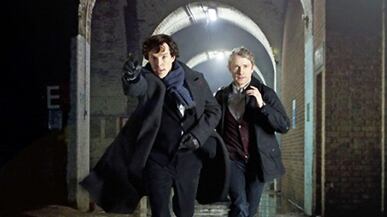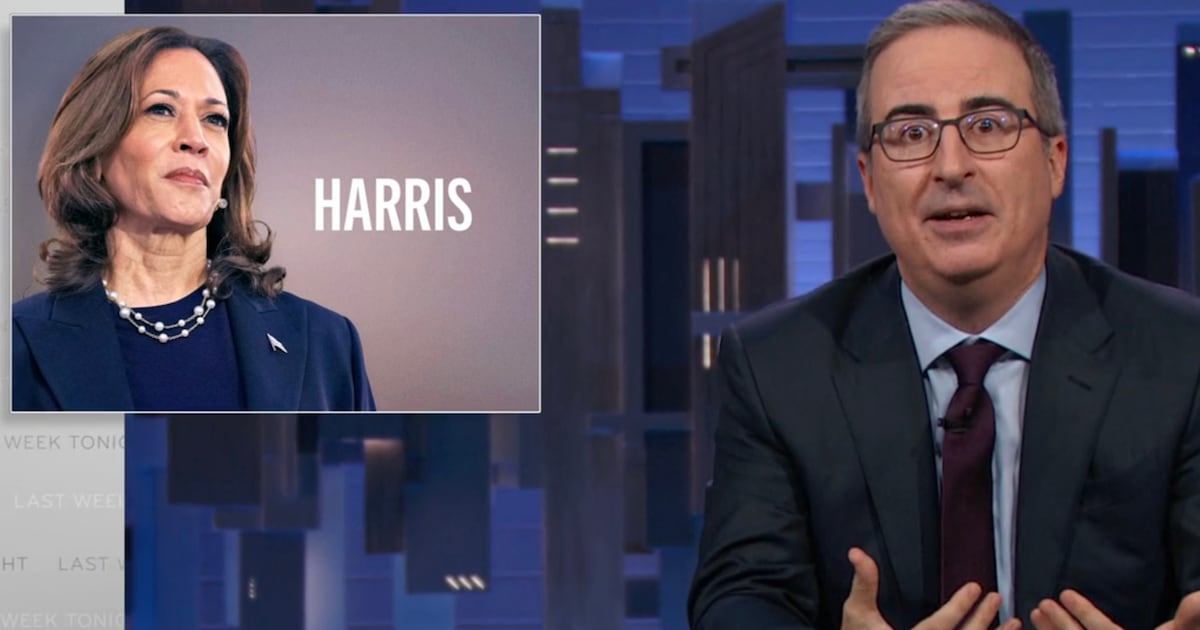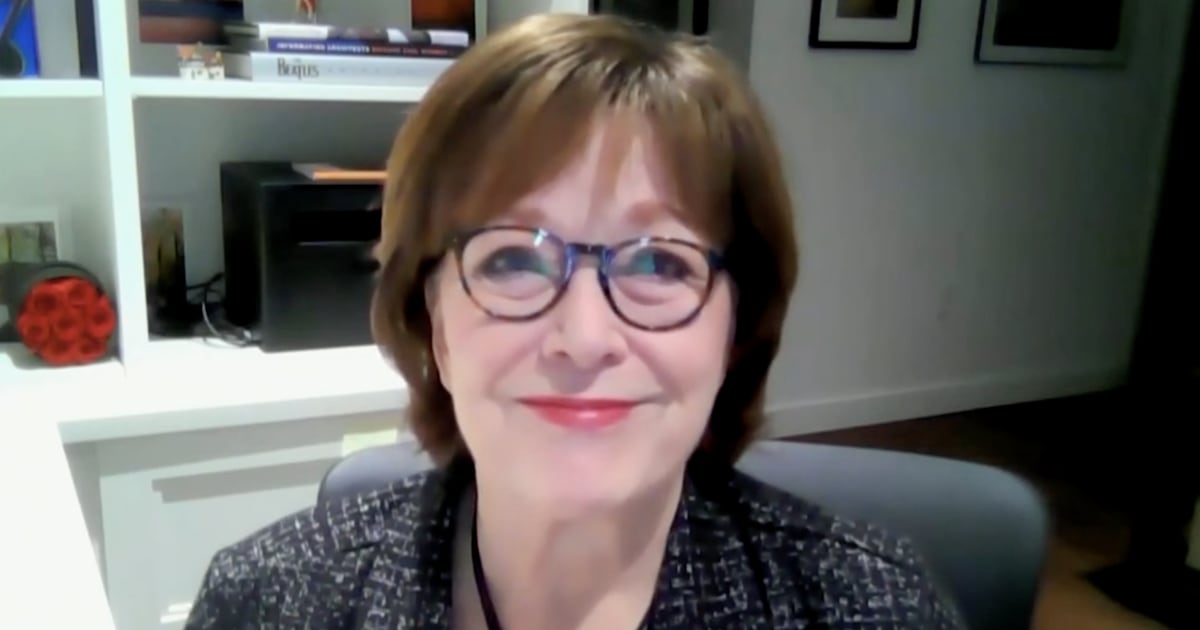There are few fictional characters as beloved and as omnipresent within the collective consciousness as Arthur Conan Doyle’s Sherlock Holmes, the “consulting” detective with a nose for deduction and a flair for the impossible.
The role has been played by everyone from Robert Downey, Jr.—who starred in Guy Ritchie’s Sherlock Holmes last year—to Basil Rathbone, who played Holmes as a Nazi-fighting detective in 1940s London in a series of 14 films that took the detective and his trusted companion, ex-army surgeon Dr. Watson out of the original novels’ Victorian trappings.
Steven Moffat and Mark Gatiss, both known for their work on the British sci-fi series Doctor Who, hatched a scheme to bring Holmes and Watson to the present day for the BBC. Their take on the supercilious detective, Sherlock, launches Sunday on PBS’ Masterpiece Mystery after a hugely successful run in the U.K., where it racked up nearly 10 million viewers each week.
ADVERTISEMENT
The three-episode season stars Benedict Cumberbatch ( Small Island) and Martin Freeman ( The Office). Freeman made headlines this week when he was confirmed as the lead in Peter Jackson’s Lord of the Rings prequel, The Hobbit, where he will play another iconic literary figure, Bilbo Baggins, a role originated by Ian Holm.
Sherlock’s genesis occurred during a series of train trips back and forth to Cardiff, Wales, where Doctor Who is shot, after Moffat and Gatiss admitted to an embarrassing Holmesian truth: that they both preferred those anachronistic Basil Rathbone/Nigel Bruce adaptations to the Victorian ones.
“As a little child, I remember being slightly cross about it, but I remember thinking they’re so much more fun,” said Moffat, sitting alongside Gatiss in a deserted ballroom at the Beverly Hilton in August. “They capture the lightness, the humor, the fun, the gratuitous luridness of Doyle’s original stories in a way that many of the grander, more important adaptations completely miss.”
It’s only fitting then that Moffat and Gatiss should pick up Holmes and Watson and deposit them in the 21st century, in a London that’s vastly different from the Victoriana of Doyle’s novels and yet eerily similar, a city that runs on the fumes of industrialization.
The sleuths’ tools are iPhones, GPS tracking, and text messages, as Moffat and Gatiss have given the audience a technologically proficient Holmes that’s uniquely suited to our modern age, while retaining elements of the original, such as the 221B Baker Street address, Inspector Lestrade (Rupert Graves), and landlady Mrs. Hudson (Una Stubbs). Watson’s blog posts become an ongoing account of Holmes’ exploits and text messages appear on screen as thought bubbles, an invention of director Paul McGuigan.
“We are precisely as respectful and reverential as Sherlock Holmes’ creator was, i.e., not,” said Gatiss. “But that comes from a place of love. He used to write the stories in crowded rooms. The reason for all the wonderful, odd continuity errors—like Professor Moriarty having the same Christian name as his brother or how Watson’s wound keeps moving—was because he dashed them off. He was a genius so therefore his version of dashing it off is rather amazing. We wanted to get that sort of fun back.”
“He’s a work-obsessed sociopath who is almost divinely gifted,” said Cumberbatch.
Make no mistake: the bold and brainy Sherlock is a madcap thrill-ride, with Cumberbatch’s Holmes a misanthropic genius who doesn’t gladly suffer fools.
“He’s a work-obsessed sociopath who is almost divinely gifted,” said Cumberbatch. “The deduction, the idea of understanding through circumstances, stimulus, and evidence is a bigger bracket, whether it’s human behavior, whether it’s a bit of mud left behind, whether it’s blood or a wedding ring shinier on the inside than the outside, whether it’s a coat being damp. The details of life… he makes everything suddenly seem more exotic.”
“The arc of his character over the three stories is how he becomes humanized by Watson,” he continued. “He’s a man who wants to be a God. He wants to be able to control and do away with the unimportant, the mediocre, the stupid, and even the victims. He’s interested in the game… and that leads headlong into morality by the end.”
Watson here is an ex-army doctor returned from Afghanistan who starts a blog as part of his recovery process. The two become roommates and partners in crime, a bond solidified in the field. “We wanted to blow the fog away and get back to this friendship,” said Gatiss.
But don’t expect Watson to be portrayed as the bumbling sidekick that modern audiences have come to wrongly expect. This skilled marksman is no Miss Marple.
“I wanted to get away from that,” said Freeman, via a late-night phone call after a stage performance of Clybourne Park at the Royal Court in London recently. “He was a soldier. He’d just come back from the war, been injured in the war, and he was used to serving people on the battlefield and saving lives and, if necessary, taking lives. This wasn’t a 75-year-old man on his own holiday of solving a murder in Sussex. This was a man of action.”
It was also important to the creators that Watson not be given short shrift. Besides narrating Doyle’s stories, he bore an equal amount of prominence, something that’s been lost in many Holmes adaptations over the years.
“It’s only in the fiction that Dr. Watson is somehow less important than Sherlock Holmes, because he’s not a detective and Sherlock Holmes is,” Moffat said. “In the actual mechanics of the way the stories work, they are two characters of equal stature.”
Together, they are a consummate team of crime-fighters, as Holmes’ deductive skills are matched by Watson’s grasp of the real world. Drawing on the vast array of novels at their disposal, Moffat and Gatiss create a vivid and evocative world for Holmes and Watson, one where the threat of Moriarty looms large, and then there’s the matter of the mysterious M—played by Gatiss himself—who is a thorn in Holmes’ side.
Given the project’s provenance—Moffat is the head writer/executive producer of Doctor Who—it’s impossible not to compare Holmes with the Doctor.
“In terms of the Doctor, he’s notionally an alien,” Moffat said. “But he’s not at all grand… He is a deeply, profoundly emotional man. There’s nothing aloof about that fellow at all. He has every emotion from the petty to the grand. Whereas Sherlock Holmes really is an ordinary human being with no special powers who just tries to raise himself up to something more extraordinary, to try and put all these emotions away in an iron box... and absolutely believe, in quite a Victorian way, that these things are limits. The Doctor thinks they’re empowerments.”
Delivering Doctor Who-level ratings, it’s no surprise that the BBC has commissioned another season of Sherlock, for which Cumberbatch and Freeman will both return. Rumors had swirled, meanwhile, that Freeman would play Bilbo Baggins in Peter Jackson’s The Hobbit. As late as last month, Freeman said that he had very reluctantly turned down the role.
Freeman said, “I had to, unfortunately, because [Season 2] was all set to go and contractually I had to, but it’s a happy contract I’m in. I’m very glad to be doing Watson.”
Fortunately, that scheduling conflict has been averted and Freeman will don a set of prosthetic hobbit feet for Jackson’s two-part Hobbit adaptation, and return as John Watson for Season 2 of Sherlock, expected next year.
Everyone—from the creators to the cast—seem satisfied that audiences have embraced Sherlock’s modern context, despite any initial fears.
“Almost every other fictional character is routinely updated,” said Moffat. “Everyone was rejoicing quite recently that at last Fleming’s Bond was on screen in Casino Royale. Not one person said, ‘Updated by several decades.’ The setting doesn’t matter. That is true of Sherlock Holmes. I think we can now say we’re right. We’ve just proven it. It’s been such a huge hit in Britain. That’s what people like with Sherlock Holmes… As much as we love fog and the gas lamps and posh shouting, it’s not about that.”
Jace Lacob is the writer/editor of Televisionary, a website devoted to television news, criticism, and interviews. Jace resides in Los Angeles. He is a contributor to several entertainment Web sites and can be found on Twitter and Facebook.





